Imagine that fighting has broken out between rival groups in your town, and it’s so dangerous that you can risk your life just by going to the grocery store or to your job.
How would you feel to come home from work and find your home damaged and your neighbors killed by bombs dropped on your street?
What would you do if you and your family were no longer able to get water for bathing, cleaning, cooking and drinking? If staying in your home became more dangerous than facing the risks and uncertainties of fleeing to another city, region or country?
Every day around the world, people are forced to make the life-altering decision of leaving their homes behind, to escape conflict, persecution or natural disaster. Sometimes it’s temporary, such as when a hurricane or tornado hits a community, and homes and businesses are destroyed and must be rebuilt. Sometimes forced displacement stretches on — for months, years or even decades.
The number of displaced people in the world has now surpassed 103 million—the highest number in human history. It’s a hard number to imagine. (Picture almost 1,500 US football stadiums at full capacity.) Behind that unimaginable number are more than 103 million individuals—mothers, fathers, grandparents, sisters, brothers and children—who faced a life-or-death choice, and have upended their lives in their quest to protect their loved ones and survive.
When people flee, two things happen. They become internally displaced persons (IDPs), taking up residence inside their country—in shelters, camps, homes of family or friends, or any other accommodations they can find. Or they leave behind their countries altogether to seek refuge in a new country, where they may not know anyone, may not speak the language and often lack the legal status or ability to get a new job and start over.
People like this are usually not asking for much—most want little more than safety for their families and a future for their children. Here are a few of their stories, in their own words.
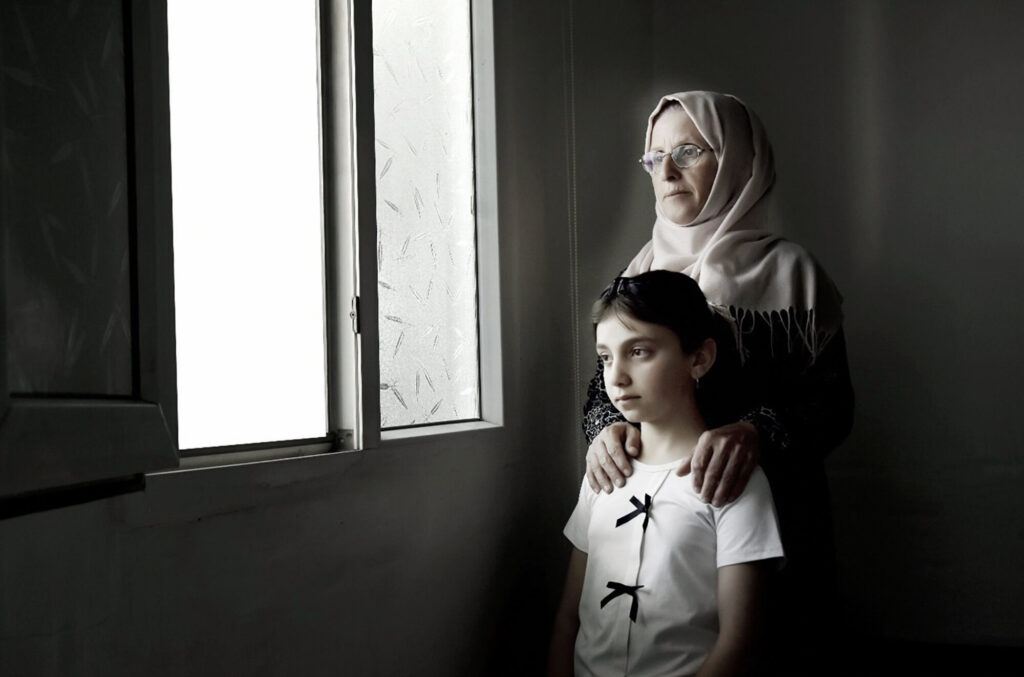
Mashallah, Homemaker from Al Qamishli City, Syria
On February 21, 2012, my family packed our bags, and my husband, my five children and I boarded a bus with some other families from our hometown to the Syria–Iraq border. I was worried that we wouldn’t be allowed to cross the border and would be sent back home, where there was no hope—only destruction. We brought clothes, legal documents, some photographs of my parents and the favorite toy of our young child. The legal documents were crucial to prove our identities in the new country and to get services for refugees. The photographs, on the other hand, held deep sentimental value, serving as poignant reminders of the cherished moments we spent with my parents.
Upon reaching the border, we had to continue our journey on foot. Our only hope was safety, and our only motivation was a good and secure future for our children. It took us about a day-and-a-half to reach Domiz camp in Iraq. The decision to leave my homeland was a deeply personal and heart-wrenching one, motivated by a sincere desire to protect my family. As a parent, I wish for my children to grow up to be good people, empowered with education, empathy and a strong sense of purpose. I hope they embrace their potential, strive for personal fulfillment and dedicate themselves to making a positive difference in the lives of others.
I yearn for Syria to regain its stability, and for peace, harmony and prosperity to return. If given the opportunity, I would undoubtedly consider returning home. Despite the unstable conditions we hear about, we have a strong emotional connection and sense of belonging to our homes—a desire to reconnect with our roots and contribute to the rebuilding and development of our country.
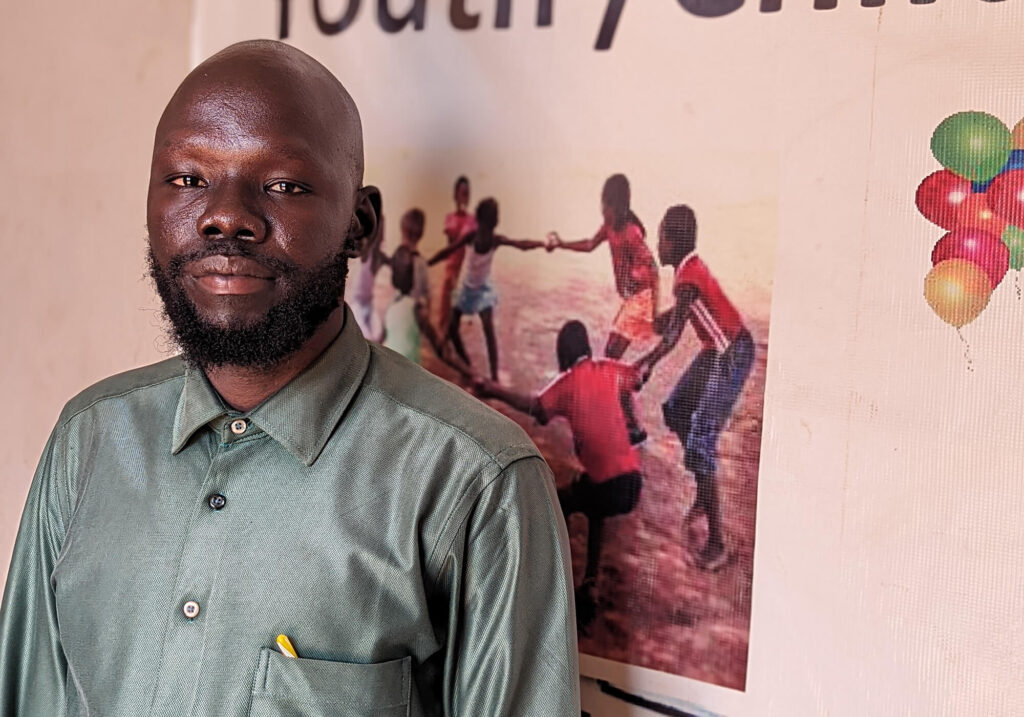
Bol Koang, Student from South Sudan
In 2013 I was a student at Upper Nile University, but when the war broke out, I could no longer continue my studies. I was forced to leave my home, and I sought safety in a United Nations compound. After eight months, we were transferred to a camp for internally displaced people in Juba, where I have been living since 2014.
In 2019, I joined International Medical Corps as a Community Health Worker. I conduct awareness-raising activities and other health services in my community. Working with International Medical Corps has given me an opportunity to help my community and to earn money to be able to continue my education. My dream is to have peace in South Sudan because when there is peace, we will return to our homes. Life is very hard in the IDP camp.
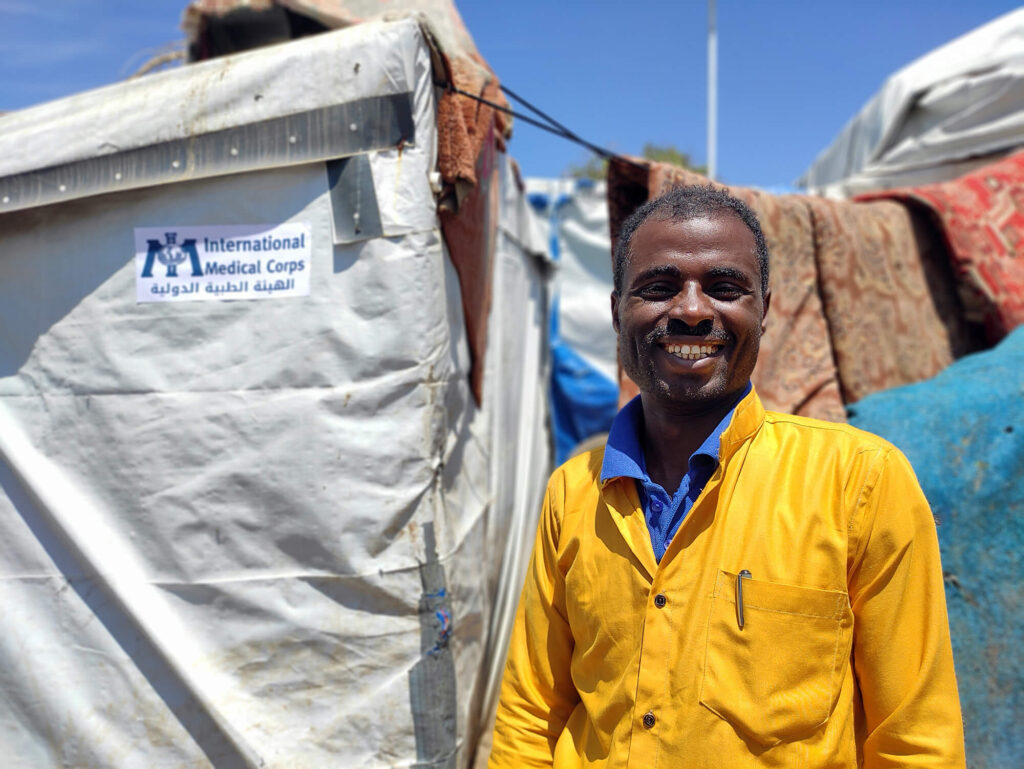
Abdulsalam Najee, Community Health Worker from Ibb, Yemen
I had a job working in sanitation in the city of Ibb, where I was living with my wife and five children. But the war changed everything. There was a bombing, and my wife was killed. I wanted to return to my hometown of Taiz, but it was also affected by the war, so my children and I traveled by bus to Ibb.
We didn’t know anyone in Ibb and I could not afford the rent for an apartment, so we lived in a tent in a camp for internally displaced people. Near the end of 2021, I joined International Medical Corps’ water, sanitation and hygiene (WASH) team, and received training on various topics, including cholera prevention, handwashing, waste management, hygiene, water treatment and management, and general measures for preventing the spread of communicable diseases. Using this training, my job is to raise awareness of good health and hygiene practices among camp residents.
Because of the work I’ve done, when International Medical Corps’ WASH team visited the camp recently, they did not see any open defecation or solid waste. I’m proud that Dar Al Sharaf is a healthier and cleaner camp. And I am over the moon to work with International Medical Corps. It’s been only two years, but the organization has changed my life for the better. I can help people, and I have developed good relations with the community and local authorities.
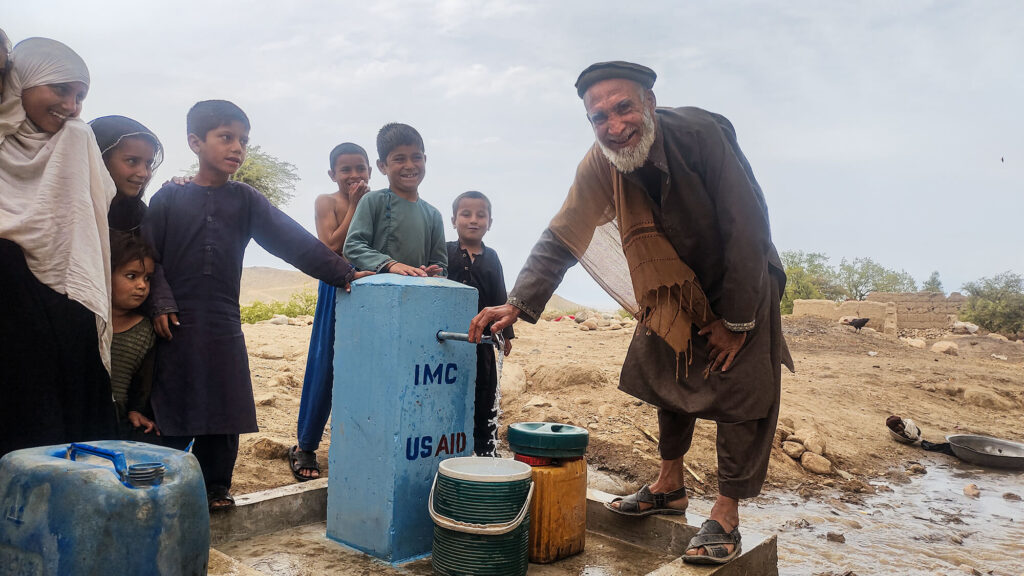
Jamil, Community Representative in Afghanistan
In 2015, my family and I had to leave our village, Hujom, because of conflict as well as a lack of water. We were able to find a place to live in Jalalabad city, where we stayed for several years. In 2021, I was hoping to return to my home village, but continuous drought and water scarcity made that impossible. Then, at the end of 2022, I heard that an International Medical Corps team had visited the village and decided to construct a solar-powered water supply system to provide clean drinking water to the community.
My family and I were able to return to Hujom in February 2023, as water is now available. Now, our whole community has clean water, and I even use some water to grow a garden. I’m grateful for the opportunity to have clean water beside my home. Our children no longer need to travel to distant places to bring water from open springs and streams.
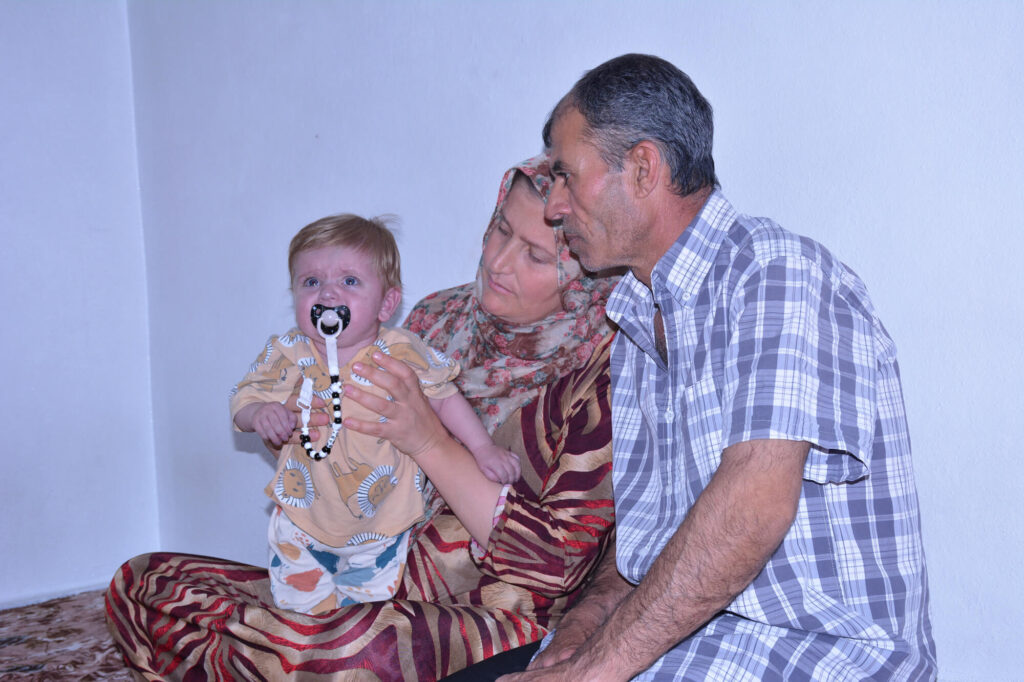
Abdulsalam Ali Aboush, Construction Worker from Qamishli City, Syria
In 2011, when the war started, we faced harrowing circumstances, including bombing of my neighborhood. The situation forced me and many others to make the difficult decision to leave our homes behind. We started our perilous journey to the Syria-Iraq border in February 2013. We had to walk most of the time … occasionally, we were fortunate enough to catch a fleeting ride in a car.
Throughout the journey, my major concern was the safety and well-being of my family, as security checkpoints and ongoing bombings posed significant threats along the way. The primary challenge was to ensure our secure passage through the border, where many other Syrian families had gathered. We persevered despite the arduous circumstances, and after almost two days of travel, we successfully reached our destination.
I want to secure a brighter and safer future for my children. While the current security situation remains uncertain, I hope that conditions will improve in the coming years, leading to a safer and more stable environment. If such circumstances materialize, and there are developments that facilitate a decent living and a sense of security, I will unquestionably consider returning to my home country. The prospect of re-establishing my life and contributing to the rebuilding and progress of my community is a deeply cherished aspiration I hold.
International Medical Corps has been supporting the health and well-being of displaced people and refugees since 1984. Learn more about our current work with displaced people and refugees in Ukraine and the Sudan region.